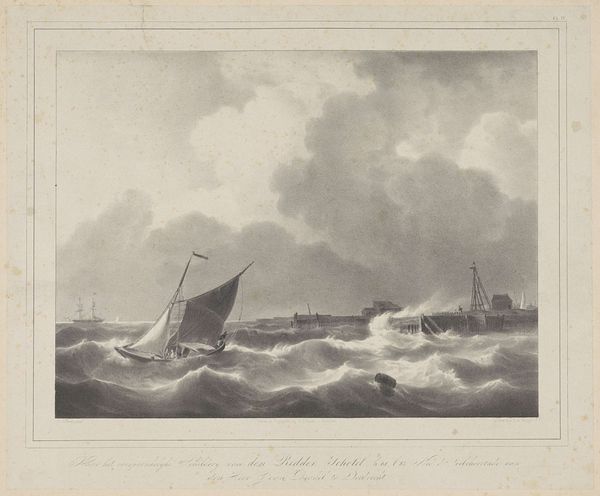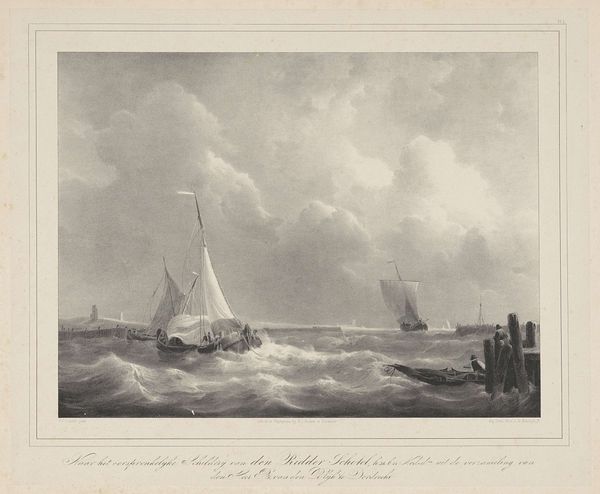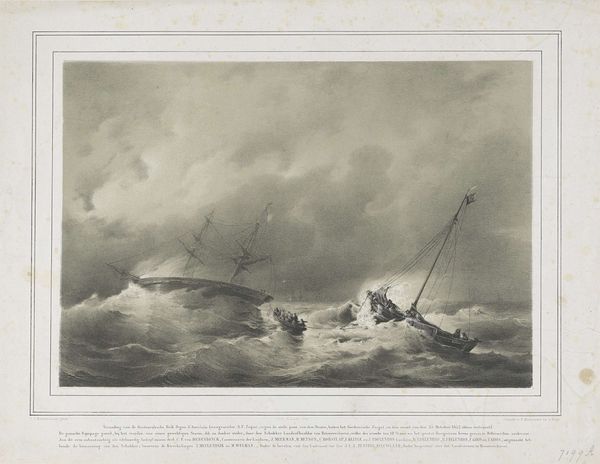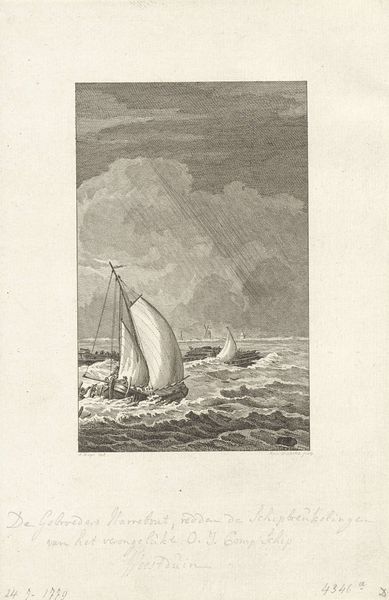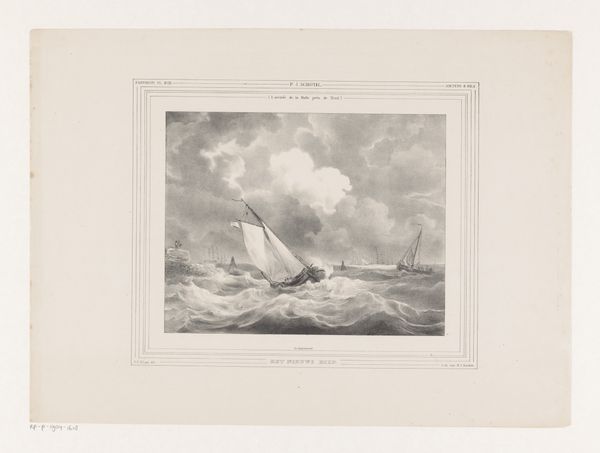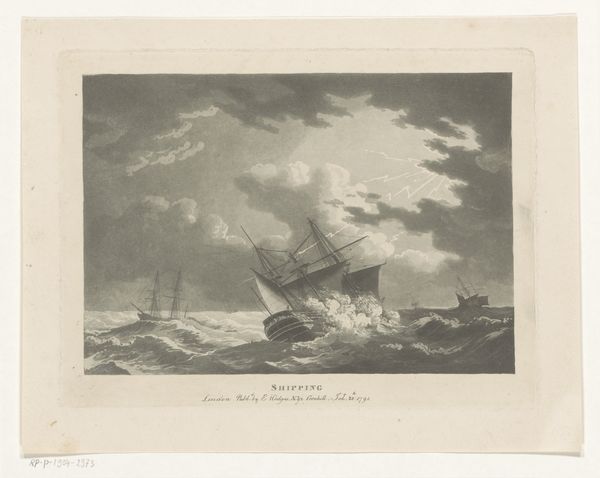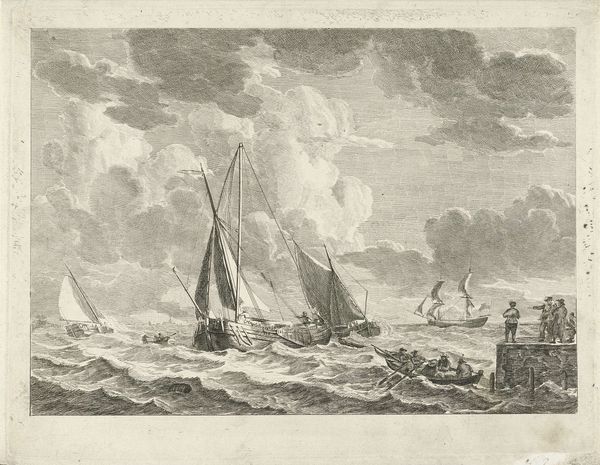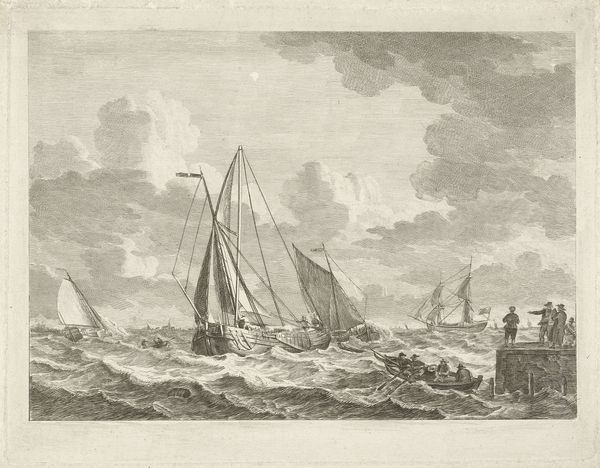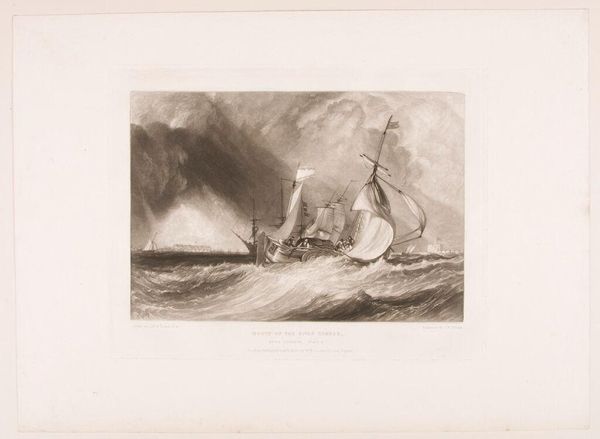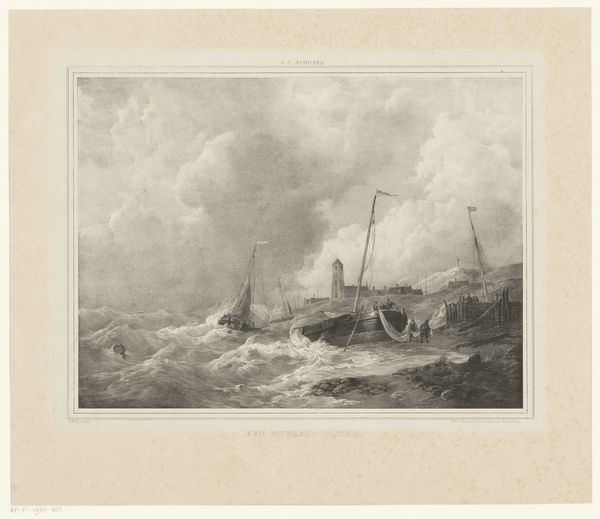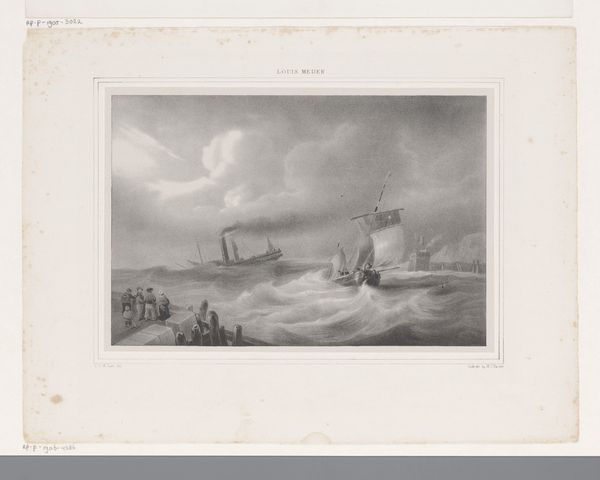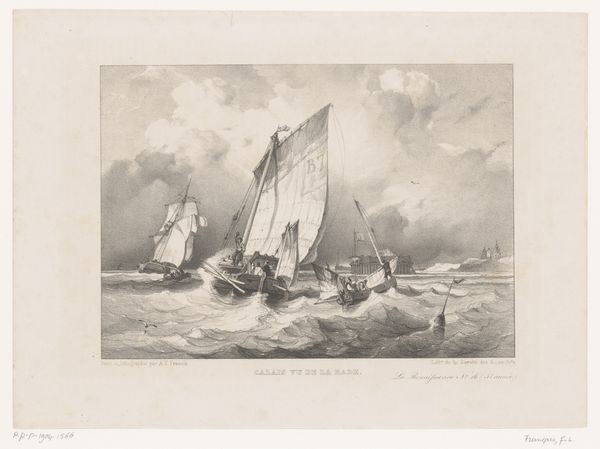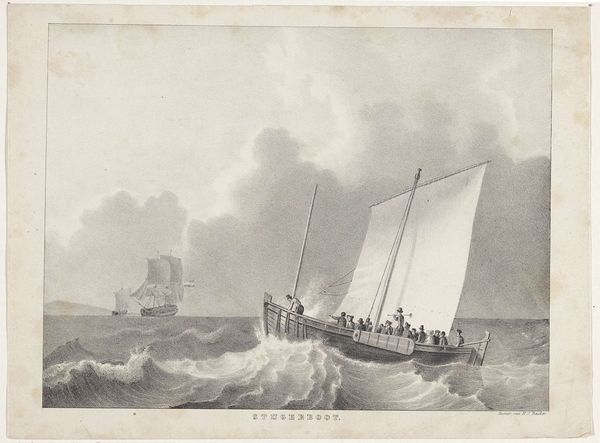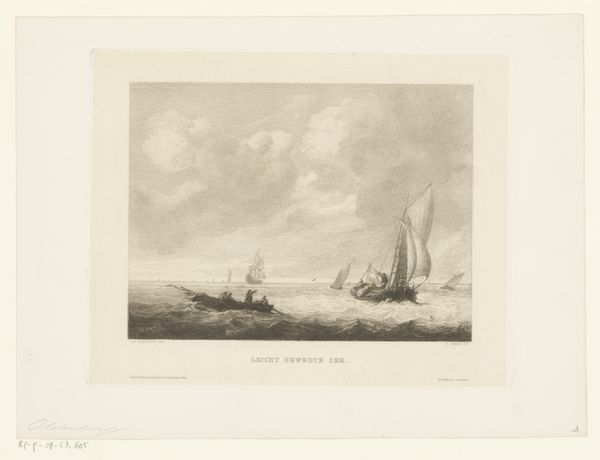
drawing, etching, pencil
#
pencil drawn
#
drawing
#
etching
#
pencil sketch
#
landscape
#
pencil drawing
#
romanticism
#
pencil
#
pencil work
Dimensions: height 310 mm, width 445 mm
Copyright: Rijks Museum: Open Domain
Editor: This is “Storm in de haven van Enkhuizen” by Gerhardus Fredericus Eilbracht, made sometime between 1826 and 1854. It’s a drawing and etching of a ship battling rough seas, and honestly, it makes me feel a little seasick just looking at it! What's your interpretation of this scene? Curator: This piece resonates deeply when viewed through a lens of societal power dynamics and human struggle against overwhelming forces. Consider the Dutch Golden Age, when maritime prowess defined national identity and fueled colonial expansion. Doesn't the storm, rendered in such dramatic detail, serve as a potent metaphor for the unpredictable and often brutal nature of those ventures? Editor: I see what you mean about the storm being a metaphor. It's hard to ignore how small the boat looks compared to the waves. Curator: Exactly. And who is on that boat? The sailors, the workers – their lives are quite literally at the mercy of forces beyond their control. The image makes me wonder: What were their stories? How did they grapple with the economic and political storms of their time, both literal and figurative? We should consider it as an early depiction of the climate crisis, too, as this sort of work highlights the fragility of the harbor city. Editor: So, beyond just a dramatic scene, it's a commentary on the lives and vulnerabilities of those involved in maritime activities during that era? Curator: Precisely. The "Storm in de haven van Enkhuizen" isn't just a landscape; it's a seascape imbued with layers of socio-political context, a reminder of the human cost of ambition and a reflection on the uneasy relationship between humanity and nature. It is interesting how we, even today, repeat these motifs by testing our resilience as a society against the forces of nature, again and again. Editor: I never would have looked at it that way, but it gives the artwork a lot more depth! Thanks. Curator: My pleasure! It is only through connecting such narratives that we grant these historic art pieces significance in today's world.
Comments
No comments
Be the first to comment and join the conversation on the ultimate creative platform.
